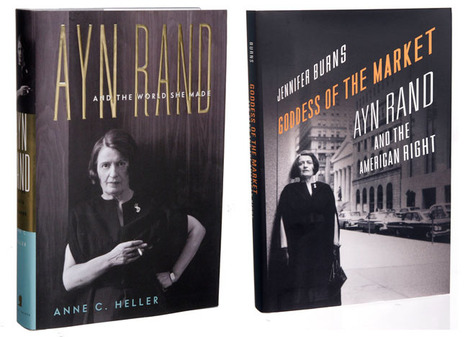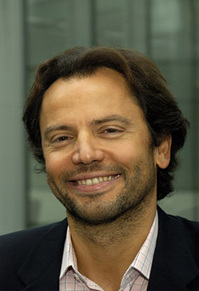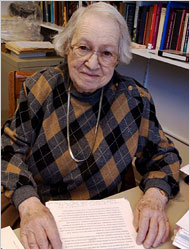(p. W14) Are certain kinds of modern art too complex for anybody to understand? Fred Lerdahl thinks so, at least as far as his chosen art form is concerned. In 1988 Mr. Lerdahl, who teaches musical composition at Columbia University, published a paper called “Cognitive Constraints on Compositional Systems,” in which he argued that the hypercomplex music of atonal composers like Messrs. Boulez and Carter betrays “a huge gap between compositional system and cognized result.” He distinguishes between pieces of modern music that are “complex” but intelligible and others that are excessively “complicated”–containing too many “non-redundant events per unit [of] time” for the brain to process. “Much contemporary music,” he says, “pursues complicatedness as compensation for a lack of complexity.” (To read his paper online, go to: http://www.bussigel.com/lerdahl/pdf/Cognitive%20Constraints%20on%20Compositional%20Systems.pdf)
. . .
Mr. Lerdahl is on to something, and it is applicable to the other arts, too. Can there be any doubt that “Finnegans Wake” is “complicated” in precisely the same way that Mr. Lerdahl has in mind when he says that a piece of hypercomplex music like Mr. Boulez’s “Le marteau sans maître” suffers from a “lack of redundancy” that “overwhelms the listener’s processing capacities”?
. . .
“You have turned your back on common men, on their elementary needs and their restricted time and intelligence,” H.G. Wells complained to Joyce after reading “Finnegans Wake.” That didn’t faze him. “The demand that I make of my reader,” Joyce said, “is that he should devote his whole life to reading my works.” To which the obvious retort is: Life’s too short.
For the full commentary, see:
TERRY TEACHOUT. “Too Complicated for Words; Are our brains big enough to untangle modern art?.” The Wall Street Journal (Sat., June 26, 2010): W14.
(Note: ellipses added.)
The research discussed above is:
Lerdahl, Fred. “Cognitive Constraints on Compositional Systems.” Contemporary Music Review 6, no. 2 (1992): 97-121.




